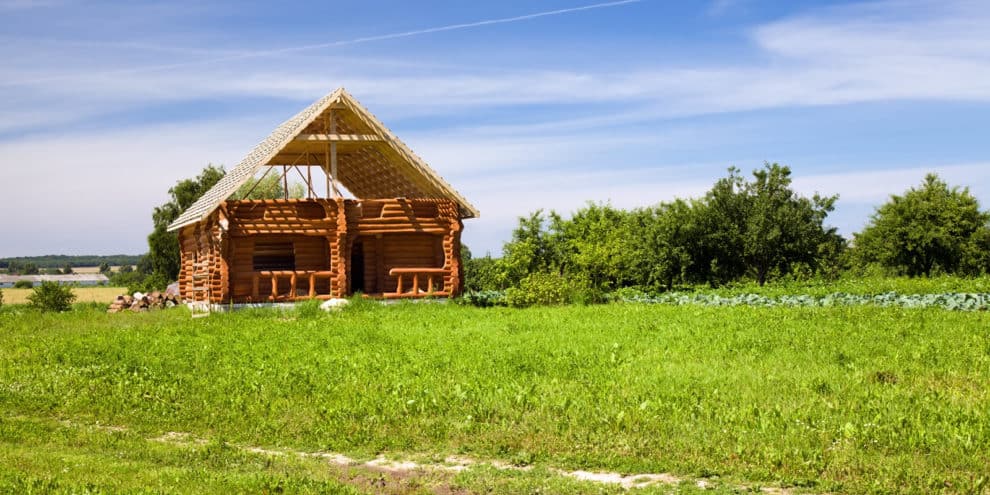If you’re thinking of someday having a cabin on your recreational property, the time to start thinking about it is when you start looking for property to buy.
This is something recreational real estate brokers talk about with land buyers all the time. In some cases, buyers want to look for property that already has a structure on it, but in many cases, they want to make sure they have the option for the future.
With this in mind, here are five things to think about if you plan to someday put a structure on your property.
- The property needs to have a suitable spot for a structure that fits how you plan to use the land. For example, you probably wouldn’t want to put a structure in the middle of a hunting property, where noise would disrupt wildlife. Instead, you may want to build on a certain corner of the property.
- It isn’t too early to think about what size a structure you might want. There’s a major difference between what’s needed for a hunting shack vs. a 3-bedroom cabin, both in terms of the size of the building site and in thinking about everything that would go into the structure. And, be sure to confirm the the size and type of structure you want can be built on the property you choose.
- A critical first step is to obtain a current survey of the property. We often see problems come up for landowners that resulted from an out-of-date survey, or having no survey at all. This is especially important in making sure you know the property’s exact boundaries, to avoid any issues with neighbors.
- Think about access. Take time to study the access to potential building sites on the property. Will the access be passable in the winter? Does it have sufficient drainage to withstand heavy rains? And is it wide enough for your vehicles? This might affect what building site you select on the property.
- And think about utilities. If you will want to have running water or electricity someday, think about whether it would be feasible to run utilities to the site and/or to dig a well. This varies from location to location, so be sure to confirm the information with local authorities.
In addition to these tips, we recommend working with a real estate expert who knows the ins and outs of recreational property, to help you make the best land buying decision possible while setting you up for enjoying the property in the future.
– Recreational real estate expert Charlie Chernak is broker/owner of Bear Island Land Co. in Ely, Minn., part of the Potlatch Preferred Broker network.
This content may not be used or reproduced in any manner whatsoever, in part or in whole, without written permission of LANDTHINK. Use of this content without permission is a violation of federal copyright law. The articles, posts, comments, opinions and information provided by LANDTHINK are for informational and research purposes only and DOES NOT substitute or coincide with the advice of an attorney, accountant, real estate broker or any other licensed real estate professional. LANDTHINK strongly advises visitors and readers to seek their own professional guidance and advice related to buying, investing in or selling real estate.










And, be sure to talk to the township or county planning and zoning department for important information about setbacks from lot lines and waterfront, wells, on-site septic systems and lots of other good information.